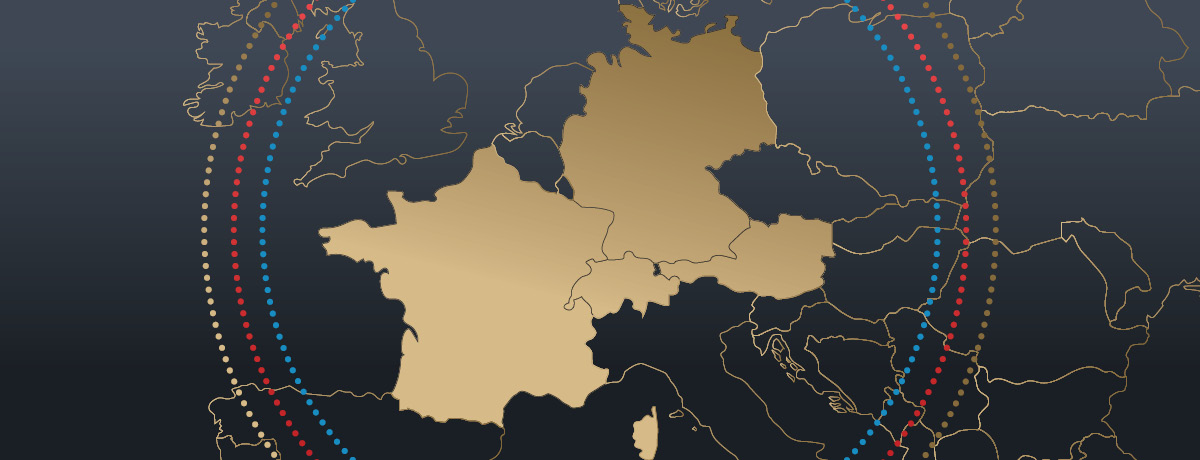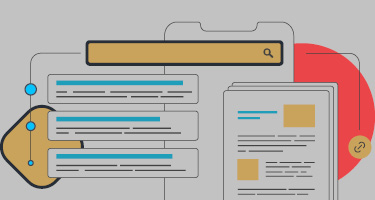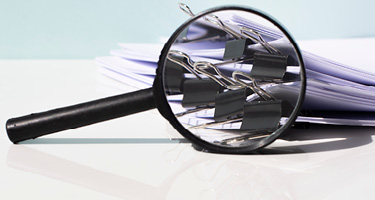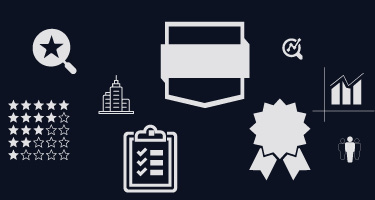Insights
Revealing the 2026 Best Lawyers Awards in Germany, France, Switzerland and Austria
by Jamilla Tabbara
These honors underscore the reach of the Best Lawyers network and its focus on top legal talent.
Read Full Article

Introducing the 2026 Best Lawyers Awards in Australia, Japan, New Zealand and Singapore
by Jennifer Verta
This year’s awards reflect the strength of the Best Lawyers network and its role in elevating legal talent worldwide.

Revealing the 2026 Best Lawyers Awards in Germany, France, Switzerland and Austria
by Jamilla Tabbara
These honors underscore the reach of the Best Lawyers network and its focus on top legal talent.

Effective Communication: A Conversation with Jefferson Fisher
by Jamilla Tabbara
The power of effective communication beyond the law.

The 2025 Legal Outlook Survey Results Are In
by Jennifer Verta
Discover what Best Lawyers honorees see ahead for the legal industry.

The Best Lawyers Network: Global Recognition with Long-term Value
by Jamilla Tabbara
Learn how Best Lawyers' peer-review process helps recognized lawyers attract more clients and referral opportunities.

Build Your Legal Practice with Effective Online Networking
by Jamilla Tabbara
How thoughtful online networking supports sustained legal practice growth.

Blogging for Law Firms: Turning Content into Client Connections
by Jamilla Tabbara
How law firms use blogs to earn trust and win clients.

Jefferson Fisher: The Secrets to Influential Legal Marketing
by Jennifer Verta
How lawyers can apply Jefferson Fisher’s communication and marketing strategies to build trust, attract clients and grow their practice.

Is Your Law Firm’s Website Driving Clients Away?
by Jamilla Tabbara
Identify key website issues that may be affecting client engagement and retention.

Medical Malpractice Reform Trends in Texas, Utah, Georgia and SC
by Bryan Driscoll
A fresh wave of medical malpractice reform is reshaping the law.

Why Jack Dorsey and Elon Musk Want to 'Delete All IP Law'
by Bryan Driscoll
This Isn’t Just a Debate Over How to Pay Creators. It’s a Direct Challenge to Legal Infrastructure.

Best Lawyers Launches CMO Advisory Board
by Jamilla Tabbara
Strategic counsel from legal marketing’s most experienced voices.

As Fla. Pushes to Repeal Controversial 'Free Kill' Law, DeSantis Signals Veto
by Bryan Driscoll
The fight to transform state accountability standards may be in trouble

Do Backlinks Still Help Law Firm SEO?
by Nancy Lippincott
How trusted, ethical backlinks influence rankings as algorithms change.

AI Tools for Lawyers: How Smithy AI Solves Key Challenges
by Jamilla Tabbara
Understand the features and benefits within the Best Lawyers Digital Marketing Platform.

Build Your Legal Practice with Effective Online Networking
by Jamilla Tabbara
How thoughtful online networking supports sustained legal practice growth.

Blogging for Law Firms: Turning Content into Client Connections
by Jamilla Tabbara
How law firms use blogs to earn trust and win clients.

The Law That Could Put Big Oil on Trial
by Bryan Driscoll
Fossil fuel companies have operated with near impunity for years. A little-known criminal statute might change that.

Cracking Down or Falling Behind?
by Bryan Driscoll
Pennsylvania’s Tougher Child Labor Penalties Amid a National Rollback

Is the Unseen Constitutional Crisis in Texas Spreading Across the US?
by Bryan Driscoll
For defendants, the consequences are devastating.

New Texas Bill Looks to Create Business Safe Haven
by Laurie Villanueva
Lawmakers aim to challenge Delaware's dominance.

Delware Overhauls Corporate Law to Stem 'DExit'
by Bryan Driscoll
How Businesses and Lawyers Can Stay Sharp, Current and Prepared.

US Commercial Litigation Trends for 2025
by Bryan Driscoll
As Business Priorities Evolve, So Too Does the Role of Litigation in the Corporate Playbook.

Why Jack Dorsey and Elon Musk Want to 'Delete All IP Law'
by Bryan Driscoll
This Isn’t Just a Debate Over How to Pay Creators. It’s a Direct Challenge to Legal Infrastructure.

A Survival Guide for the Sandwich Generation
by Candace Dellacona
Challenges and Strategies for Women Attorneys

Law Firm Marketing ROI: Strategies for Small and Midsize Firms
by Jamilla Tabbara
Understand how to improve your marketing ROI with methods tailored for law firms.

Inflation Escalation
by Ashley S. Wagner
Inflation and rising costs are at the forefront of everyone’s mind. The current volatile market makes it more important than ever to understand the rent escalation clauses in current and future commercial lease agreements.

What Is an Uncontested Divorce?
by Bryan Driscoll
A clear, cooperative path to divorce if both spouses agree on the terms

Divorce in Ohio: Filing, Process and Legal Rights
by Bryan Driscoll
A comprehensive overview of divorce procedures, rights and timelines in Ohio.

Common-Law Marriage in Indiana: Are You Legally Protected?
by Laurie Villanueva
Understanding cohabitation rights and common-law marriage recognition in Indiana.

Understanding Divorce Rights in NY
by Bryan Driscoll
A practical guide to divorce rights, procedures and legal protections in New York.

Divorce in California: What You Need to Know
by Bryan Driscoll
Learn the divorce process in California, from legal requirements to property division, custody and more. Get clear answers and find the right lawyer.

The Law That Could Put Big Oil on Trial
by Bryan Driscoll
Fossil fuel companies have operated with near impunity for years. A little-known criminal statute might change that.

Cracking Down or Falling Behind?
by Bryan Driscoll
Pennsylvania’s Tougher Child Labor Penalties Amid a National Rollback

Is the Unseen Constitutional Crisis in Texas Spreading Across the US?
by Bryan Driscoll
For defendants, the consequences are devastating.

New Texas Bill Looks to Create Business Safe Haven
by Laurie Villanueva
Lawmakers aim to challenge Delaware's dominance.

Delware Overhauls Corporate Law to Stem 'DExit'
by Bryan Driscoll
How Businesses and Lawyers Can Stay Sharp, Current and Prepared.

Do Backlinks Still Help Law Firm SEO?
by Nancy Lippincott
How trusted, ethical backlinks influence rankings as algorithms change.

AI Tools for Lawyers: How Smithy AI Solves Key Challenges
by Jamilla Tabbara
Understand the features and benefits within the Best Lawyers Digital Marketing Platform.

Build Your Legal Practice with Effective Online Networking
by Jamilla Tabbara
How thoughtful online networking supports sustained legal practice growth.

Blogging for Law Firms: Turning Content into Client Connections
by Jamilla Tabbara
How law firms use blogs to earn trust and win clients.

Law Firm Marketing ROI: Strategies for Small and Midsize Firms
by Jamilla Tabbara
Understand how to improve your marketing ROI with methods tailored for law firms.

Law Firm Marketing: 5 Strategic Steps to Attract More Clients
by Jamilla Tabbara
A practical framework for marketing a law firm with purpose.

Best Lawyers Introduces Smithy AI
by Jamilla Tabbara
Transforming legal content creation for attorneys and firms.

Why Visibility Matters: The Case for Legal Thought Leadership Today
by Jamilla Tabbara
Build trust before the first consultation.

How Whitepapers Become Legal Content That Builds Trust
by Jamilla Tabbara
Turning expertise into visibility with strategic white papers.

How to Use Content Syndication to Get Your Law Firm Website Content Seen
by Jamilla Tabbara
Syndicate your law firm’s content on trusted legal platforms to reach a wider audience and drive qualified traffic back to your website.

Best Lawyers Launches CMO Advisory Board
by Jamilla Tabbara
Strategic counsel from legal marketing’s most experienced voices.

Key Issues to Tackle on Law Firm Landing Pages
by Jamilla Tabbara
Identify key issues on law firm landing pages to improve client engagement and conversion.

How to Create High-Converting Landing Pages for Your Law Firm
by Jamilla Tabbara
Learn how to create high-converting law firm landing pages that drive client engagement and lead generation.









